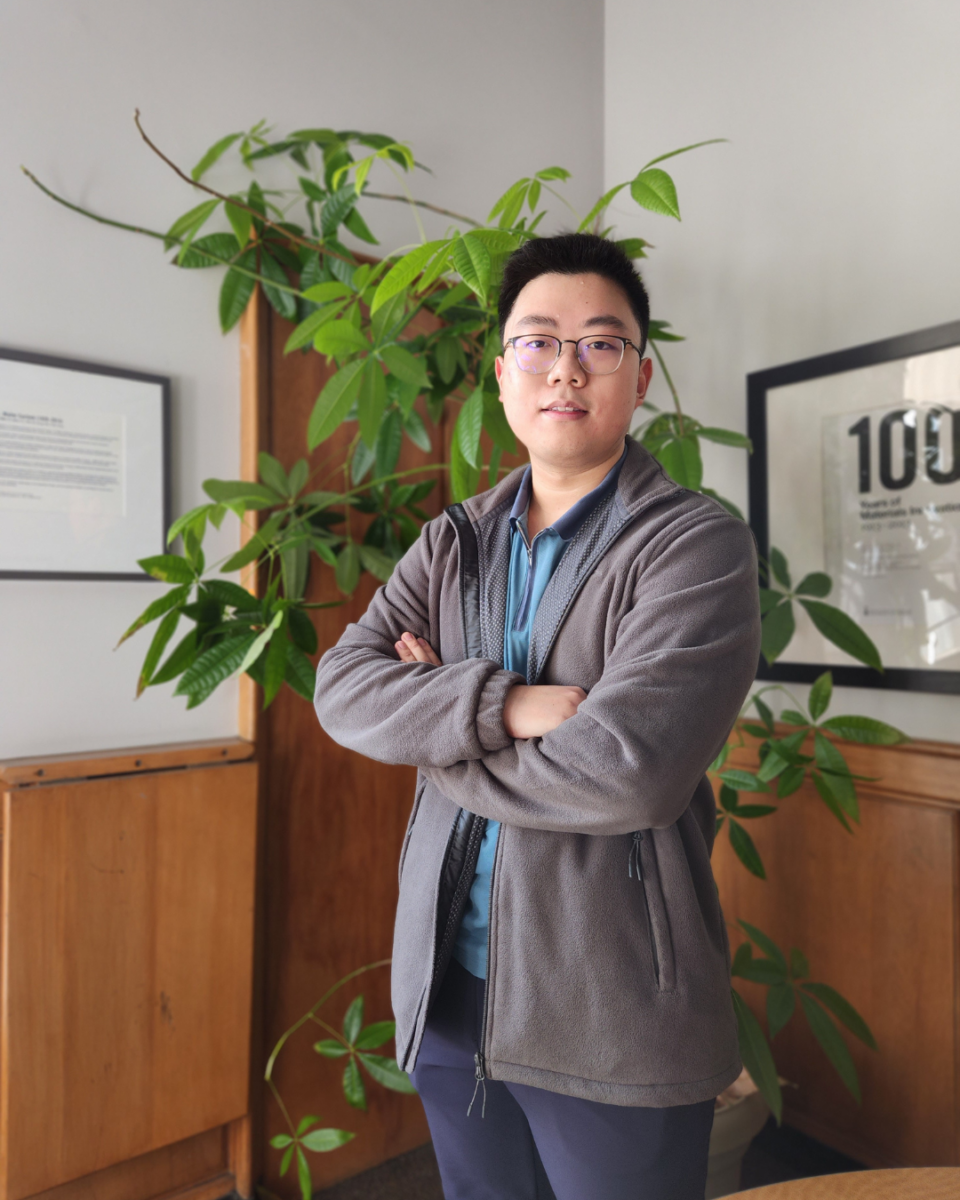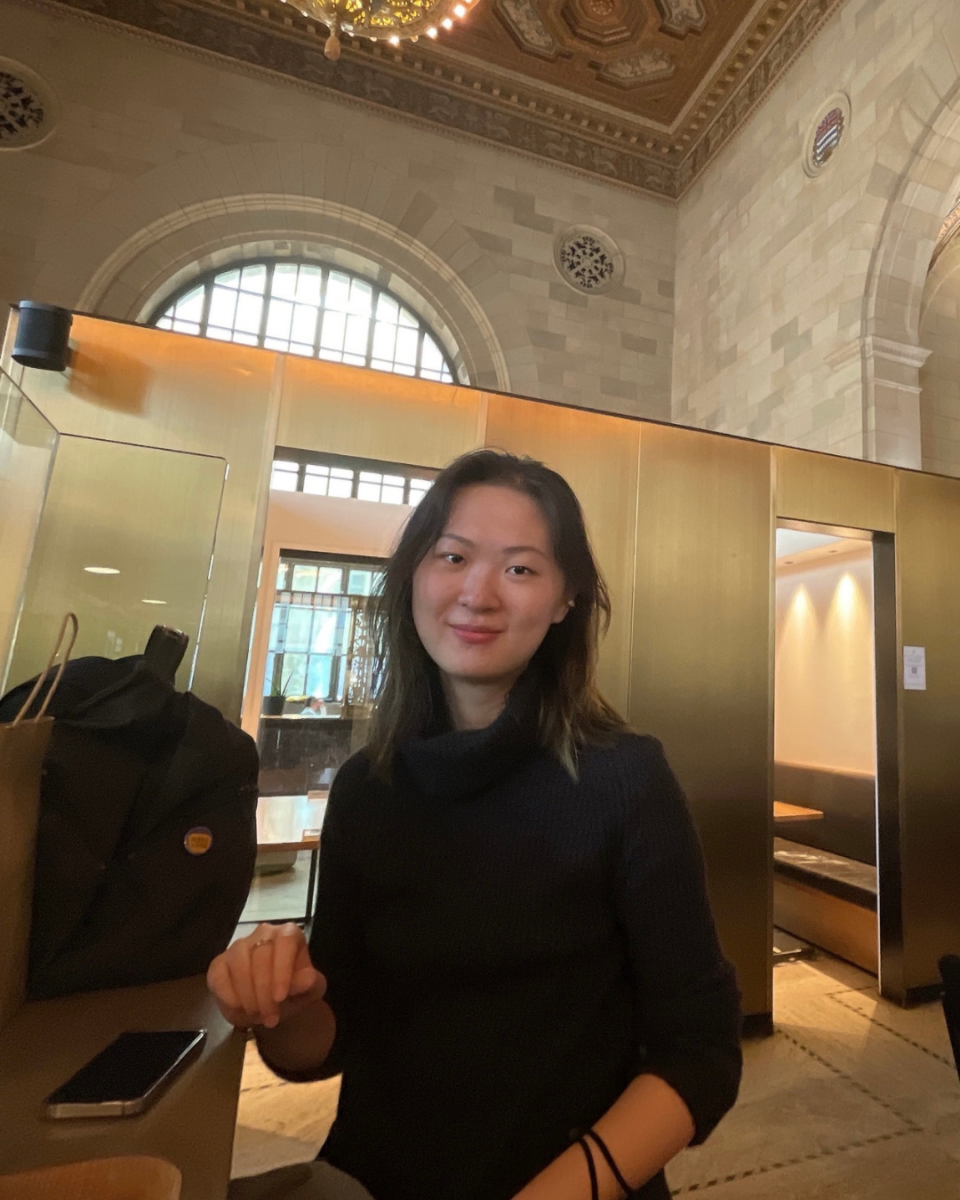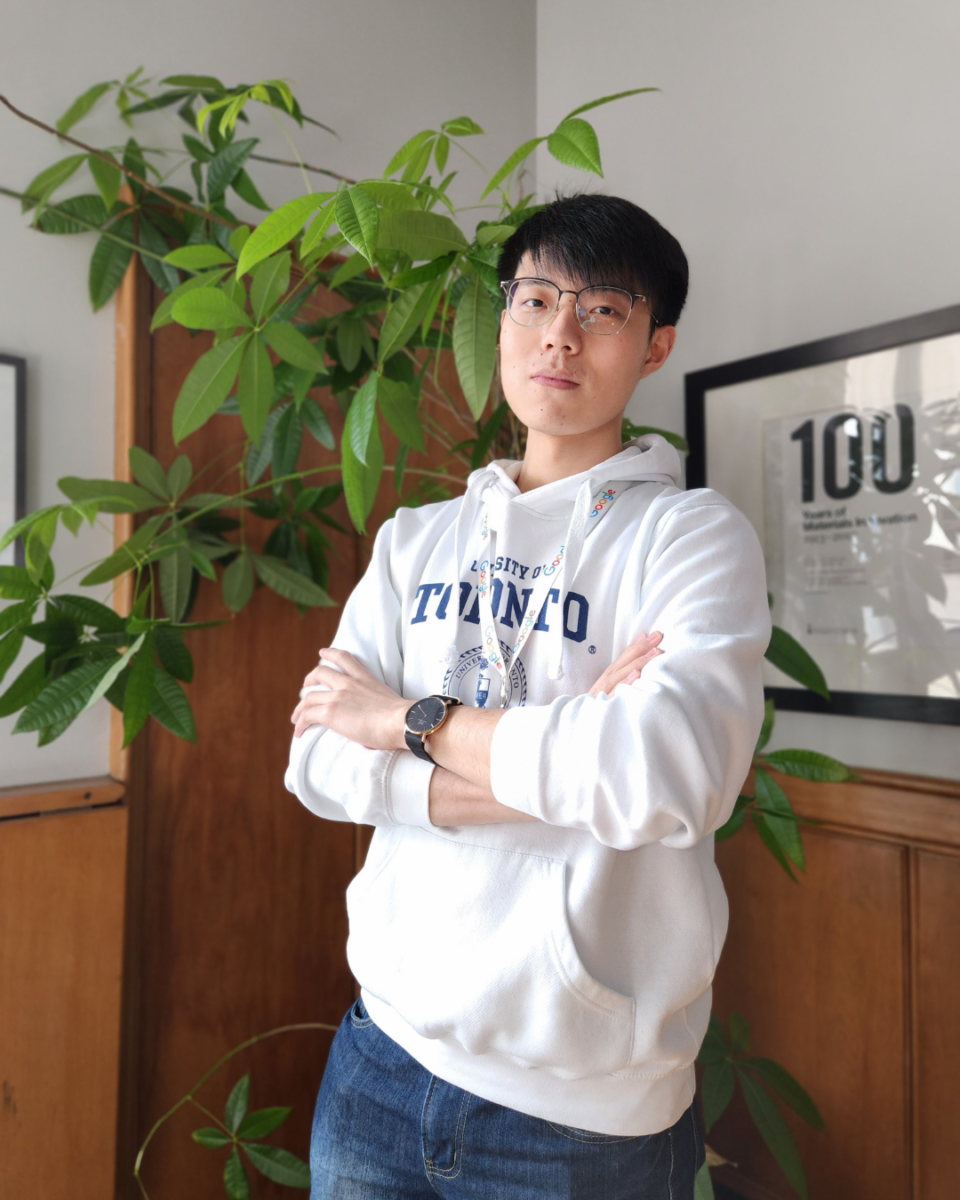Three current Master of Engineering (MEng) students tell us about the exciting projects they are working on and share their insight about the program.
Yezhou Liu | MEng Candidate

Yezhou Liu has joined the MSE department from China. Under the supervision of Prof. Chandra Singh, his MEng project involves double-atom catalysts for ammonia synthesis using nitrogen oxides. The project is computational-based and simulates the mechanisms of catalyzing nitrogen oxides to create ammonia. The project utilizes a density functional theory based software, VASP, to create simulations and conduct calculations. The goal of the project is to transfer harmful nitrogen oxides, which are by-products of combustion, into useful ammonia.
“I found my interest in energy-related fields during the last year of my undergraduate studies. Pursuing an MEng degree can provide me with more insight into this field and give me an insight into how the industry operates. At the same time, I have done a computational-based research thesis with Prof. Singh during my undergraduate studies, therefore, taking an MEng allows me to do what I am familiar with, which is a huge advantage compared to other graduate programs.”
Wenyue Sun | MEng Graduate

Wenyue’s project was focused on developing machine learning algorithms to predict risks of revision for hip replacement surgery based on materials used in each component of the hip implants. Under the supervision of Prof. Yu Zou, she worked on collecting and cleaning data, performing data mining and testing out different machine learning models to maximize the outcome.
“Throughout my project, Prof. Zou pointed me to a lot of helpful resources and connections that enhanced my MEng experience,” says Sun. “Being a part of a lab that holds weekly meetings, I learned a lot from my peers. I also participated in the lab’s social events and connected with my colleagues. In the final stages of my project, I was able to present it in a seminar at UofT’s Data Science Institute which marked one of my highlights working on the project.”
“My project gave me the valuable experience I need to pursue a career in data science, enabling me to gain more in-depth and hands-on knowledge of this field that can’t necessarily be substituted by coursework. I fully enjoyed working with Prof. Zou on this project.”
Runze Zhang | Former MEng student, Current PhD candidate

Runze Zhang’s works towards developing an automated analysis tool for electrochemical impedance spectroscopy (EIS). By combining machine learning techniques, specifically evolutionary algorithms, with statistical tools, he is creating a scientifically-informed artificial intelligence that can automatically perform automated EIS analysis without requiring mechanistic omniscience on electrochemical systems.
“MEng program encourages us to customize courses according to our personal goals. For example, after completing three courses in the MSE department, we are free to register for the remaining seven courses offered by various departments, which cover a wide range of fields. Alternatively, the program also provides an option to combine the courses with a research project, allowing students to gain theoretical knowledge while participating in cutting-edge research projects. Moreover, the setting of technical emphasis also provides students with a chance to gain a breadth of knowledge while acquiring sufficient expertise in a particular hot-spot discipline.” says Zhang who is conducting his work under the supervision of Prof. Jason Hattrick -Simpers.
When asked why he chose UofT to continue his studies, Runze replied: “Our campus is a multicultural community that embraces diversity and respects the core values of people with different cultural backgrounds. I think that’s one of the important factors to achieve academic success.”
Zhang recently transferred to PhD program under the supervision of Prof. Hattrick-Simpers.